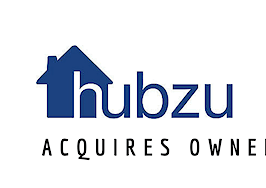Some real estate tech observers predict that one fine day, all buyers will be able to go online, choose any for-sale property they like — maybe check it out in person, maybe not — and just buy it … on the Internet.
Investors have been able to snap up distressed properties like this for some time on online auction platforms. But it’s been more challenging for buyers who want to purchase homes they plan to live in and need financing.
Hubzu has now made that a little easier for Jane and Joe.
The online property auction platform is allowing any buyer to win a home auction without demonstrating their ability to pay for the home. And its chief rival, Google-backed Auction.com, may soon follow suit.
The change Hubzu has made to its auction rules may spur more everyday buyers to consider purchasing homes on Hubzu, which lets buyers complete much of the paperwork necessary for buying a home online.
“I think by doing this and lowering the bar,” said Eric Eckardt, vice president of online real estate at Altisource, the parent company of Hubzu, “we expect to see a higher surge of buying activity.”
What the adjustment to its bidding rules does is let buyers make offers on properties much like they can in a traditional sale: by writing a “financing contingency” into their offer.
In a traditional sale, a buyer ponies up a deposit with a sales agreement, but the agreement often includes a financing contingency. The financing contingency typically stipulates that a buyer will get their deposit back if they fail to secure a mortgage.
Hubzu previously prohibited buyers from making bids with financing contingencies, requiring them instead to demonstrate “proof of funds,” documentation proving their ability to pay for a home upfront.
By letting buyers win auctions without proof of funds, Hubzu may have pulled ahead of chief rival Auction.com in what looks like the early stages of a race to cater to consumers, not just investors.
Auction.com currently doesn’t let buyers win auctions with offers that include financing contingencies, said Rick Sharga, executive vice president at Auction.com. But, he added, “as we begin selling more traditional properties, we’ll be taking a fresh look at all of our policies.”
While Hubzu seems likely to attract more everyday buyers with its new auction rules, many consumers still might not find what they’re looking for on the platform.
Hubzu currently shows only about 19,000 listings for sale. That may be because the platform accepts only listings whose owners agree to require buyers to use Hubzu to purchase them.
Buyers can typically find Hubzu properties on listing portals (Hubzu syndicates listings to property search sites through ListHub), but if they want to purchase them they must do so on Hubzu’s platform.
So what does this all mean for real estate agents? Some might see Hubzu’s push to attract everyday buyers as a negative development for real estate agents.
After all, Hubzu’s platform makes it easier for unrepresented buyers to purchase homes.
But Eckardt maintains that Hubzu is exceedingly agent-friendly.
Only real estate agents are allowed to list properties on Hubzu, he said. And the more than 150,000 agents that he said have registered on the site have been “instrumental to the success of the platform.”
Moreover, Eckardt said, Hubzu encourages visitors to use buyer’s agents by displaying agent advertising on listing pages, much like mainstream listing portals.
Some agents even use Hubzu to bid on properties on behalf of their clients, Eckardt added.
Yet there’s no denying that Hubzu has now made it easier for buyers to purchase properties unassisted by real estate agents.
Were Hubzu to make it possible for buyers to use its platform to buy any for-sale property listed online, then the platform could extend that benefit to just about every homebuyer out there.
Whether Hubzu goes that route remains to be seen. But it may soon take a step in that direction.
When asked about why more owners don’t sell on Hubzu’s platform, Eckardt mentioned that Hubzu will soon be announcing news regarding owners.com, the for-sale-by-owner website that Altisource (Hubzu’s parent company) recently purchased for up to $27 million.
It’s not hard to imagine that Hubzu might enable sellers who list their properties on owners.com to also make their homes available for purchase on Hubzu.



